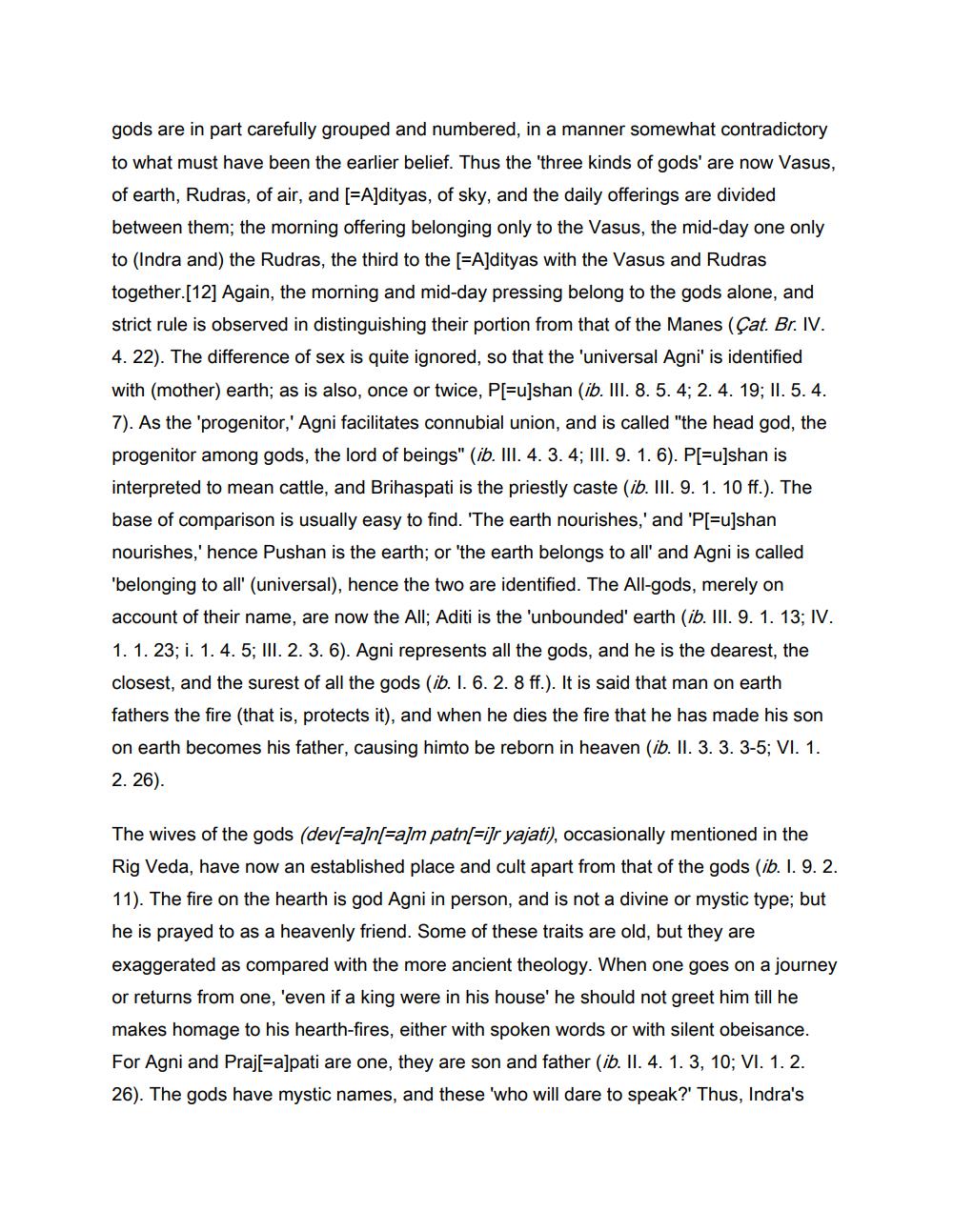________________
gods are in part carefully grouped and numbered, in a manner somewhat contradictory to what must have been the earlier belief. Thus the 'three kinds of gods' are now Vasus, of earth, Rudras, of air, and (=A]dityas, of sky, and the daily offerings are divided between them; the morning offering belonging only to the Vasus, the mid-day one only to (Indra and) the Rudras, the third to the [=A]dityas with the Vasus and Rudras together.[12] Again, the morning and mid-day pressing belong to the gods alone, and strict rule is observed in distinguishing their portion from that of the Manes (Çat. Br. IV. 4. 22). The difference of sex is quite ignored, so that the 'universal Agni' is identified with (mother) earth; as is also, once or twice, P[=u]shan (ib. III. 8. 5.4; 2. 4. 19; II. 5. 4. 7). As the 'progenitor,' Agni facilitates connubial union, and is called "the head god, the progenitor among gods, the lord of beings" (ib. III. 4. 3.4; III. 9. 1. 6). P[=u]shan is interpreted to mean cattle, and Brihaspati is the priestly caste (ib. III. 9. 1. 10 ff.). The base of comparison is usually easy to find. 'The earth nourishes,' and 'P[ru]shan nourishes,' hence Pushan is the earth; or 'the earth belongs to all' and Agni is called 'belonging to all' (universal), hence the two are identified. The All-gods, merely on account of their name, are now the All; Aditi is the 'unbounded' earth (ib. III. 9. 1. 13; IV. 1. 1. 23; i. 1. 4. 5; III. 2. 3. 6). Agni represents all the gods, and he is the dearest, the closest, and the surest of all the gods (ib. I. 6. 2. 8 ff.). It is said that man on earth fathers the fire (that is, protects it), and when he dies the fire that he has made his son on earth becomes his father, causing himto be reborn in heaven (ib. II. 3. 3. 3-5; VI. 1. 2. 26).
The wives of the gods (dev[=a]n[=a]m patn[=ijr yajati), occasionally mentioned in the Rig Veda, have now an established place and cult apart from that of the gods (ib. I. 9. 2. 11). The fire on the hearth is god Agni in person, and is not a divine or mystic type; but he is prayed to as a heavenly friend. Some of these traits are old, but they are exaggerated as compared with the more ancient theology. When one goes on a journey or returns from one, 'even if a king were in his house' he should not greet him till he makes homage to his hearth-fires, either with spoken words or with silent obeisance. For Agni and Praj[=a]pati are one, they are son and father (ib. II. 4. 1.3, 10; VI. 1. 2. 26). The gods have mystic names, and these 'who will dare to speak?' Thus, Indra's




